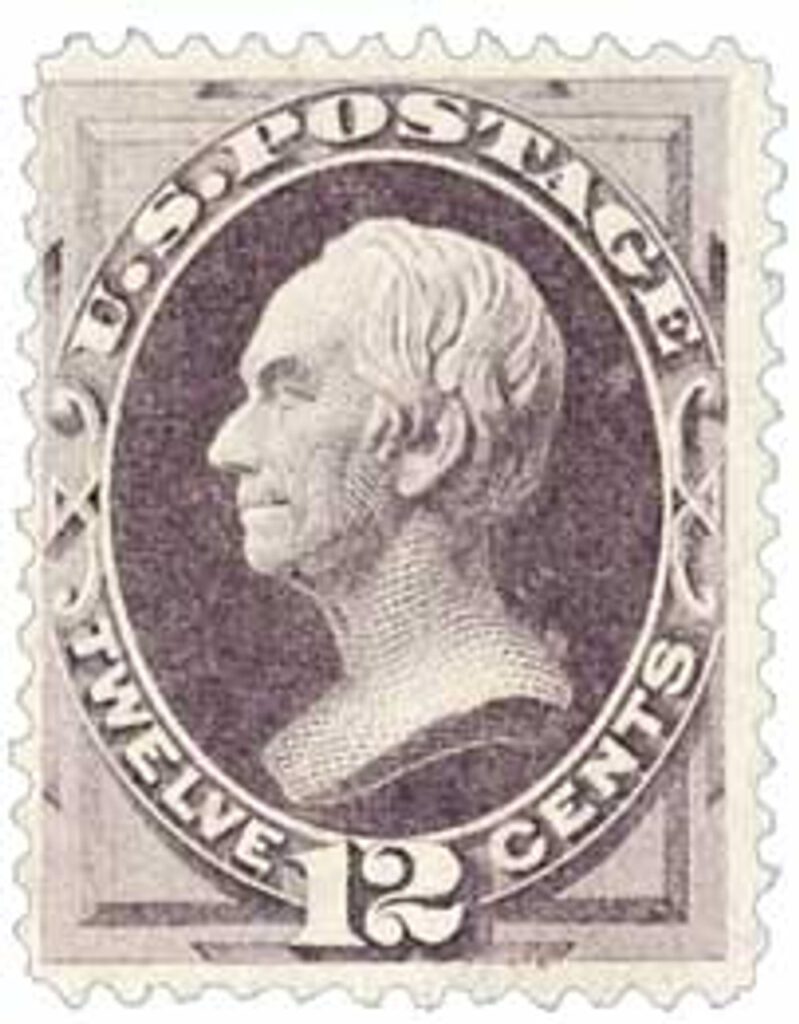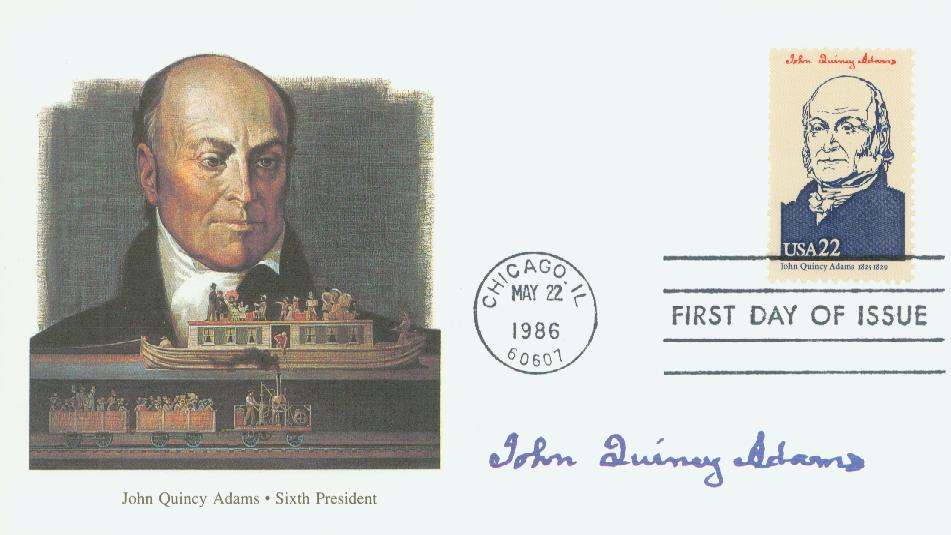On February 9, 1825, John Quincy Adams was elected president even though he didn’t receive the majority of the electoral vote.
In the years leading up to the election of 1824, the Democratic-Republican Party had won the presidency in six consecutive presidential elections, a period sometimes referred to as the “Era of Good Feelings.” President James Monroe followed the tradition of those before him and chose not to seek a third term. His vice president, Daniel D. Tompkins, was unpopular and in poor health, leaving the party’s nomination wide open.
Tensions were high between Monroe’s top advisors, three of whom were running to replace him as president. They were Secretary of State John Quincy Adams, Secretary of War John C. Calhoun, and Secretary of the Treasury William H. Crawford. Other candidates included Speaker of the House Henry Clay, and Tennessee senator and war hero Andrew Jackson. Eventually Calhoun dropped his bid for the presidency, but decided for run for vice president, which he won.
Each of the men running for President had strong support in certain sections of the country: Adams in the Northeast, Jackson in the South, West, and mid-Atlantic, Clay in the West, and Crawford in parts of the East. With so many candidates receiving significant support, none received a majority of the votes.
In the election, which was held between October 26 – December 2, 1824, Jackson received 99 electoral votes, Adams 84, Crawford 41, and Clay 37. Although Jackson had the most votes, he did not have a clear majority, so the decision was left to the House of Representatives.
According to the 12th Amendment, the choice was among the top three candidates who had received the most votes (Jackson, Adams, and Crawford). Speaker of the House Henry Clay did not like Jackson, and exclaimed, “I cannot believe that killing 2,500 Englishmen at New Orleans qualifies for the various, difficult, and complicated duties of the Chief Magistracy.” Ideologically, Clay was more aligned with Adams, so he cast his vote for him. Adams went on to win in the House on the first ballot with thirteen votes, while Jackson received seven and Crawford four.

Jackson was shocked. He’d won the most popular and elector votes and expected to ultimately win the election. Just before the results of the House election were released, a former member of Congress anonymously printed a statement in a Philadelphia newspaper accusing Clay of striking a deal with Adams – his vote for the office of secretary of State.

A formal investigation was never made, so it’s never been confirmed whether this was actually the case. However, Adams did offer Clay the position of secretary of State after he was elected. Jackson and his supporters accused the pair of striking a “corrupt bargain.” He maintained that position for the next four years, using it as part of his campaign for the presidency in 1828, which Jackson won by a landslide.
Discover what else happened on This Day in History.





I’m shocked, shocked, to learn that that two politicians would make a deal? No investigation was made? What would they investigate? If Adams or his supporters made a deal with Clay, there was nothing illegal or unconstitutional about it. It happens all the time. Read Doris Kearns Goodwin’s book, “Team of Rivals,” to see how Lincoln and his supporters made promises and promises to secure the presidential nomination for Lincoln in 1860. Jackson and his supporters came up with the winning phrase, “corrupt bargain,” and rode it to the White House four years later.
Too right Mr Gaunt. The major partners in today’s cabale are more likely to be big corporations and candidates willing to cash in $700000 for three speeches, at the expense of others with no such willingness to collaborate with the 1%. Results in the New Hampshire primary might help expose that. Thank you.
Is “cabale” an English word?
We’re upset with Congress today? History shows that this is nothing new!
Was it really a corrupt bargain? By today’s political standards it seems to happen all the time. “If I do this for you, what will you do for me?” Decisions should be made for the benefit of “We the People.”
Let’s hope that we get a president in 2016 that will bring our nation back to a proud and trustworthy standard.
G. Harper – you’re fooling yourself if you think people were “good” in the past and “bad” today. Then again, who doesn’t enjoy some rose-colored glasses now and then? God Bless!
Thanks, Charles: Reading history of America in the 18th century, one will find stories of political candidates who fought nasty campaigns and disparaged their opponents. Some resorted to duels – gunfights to settled an argument or regain their honor. If politicians fought duels today, the lineup today would be a couple fewer candidates on stage.
To the victor go the spoils, nepotism, pork barrel; These are not new terms.
That’s a fantastic story. Didn’t know how that all came about with John Quincy Adams. Can you imagine what would happened with cable TV???? Ha! ha! Would never have been allowed to happen.
There would be public outrage!
Business as usual….no surprise here.
As a fan of presidential history including elections, this story is a well known fact. However, with many of today’s politicians facts are meaningless, only tall tales like those told about the old west are fed to the public. And the media never calls them out on it. Broadcasters and reporters should relentlessly challenge these idiots about what they say. Where-oh-where are the Edward R. Murrows and Walter Cronkites today!!
As it in Ancient Rome and the then world, so it is today.
The more things change, the MORE they remain the SAME.
As frustrating as politicians are, I’d still rather live in the USA than places like China. GOD bless America!
Thank you Mr/Ms. Timm. There never be the likes of Edward R. Murrows and Walter Cronkite: “The Most Trusted Man In America”, as he was known.
There will never be the likes of Benjamin Disraeli, Ferdinand De Lesseps, or Winston L. S. Churchill